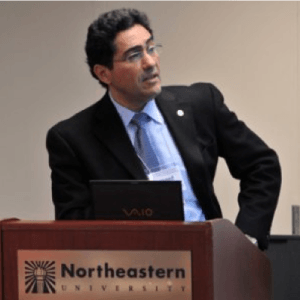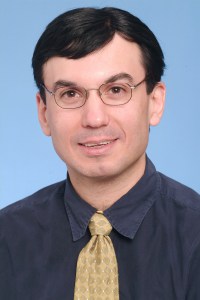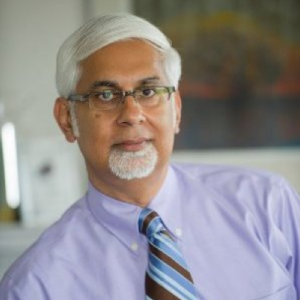BOSTON–Organization of Pakistani Entrepreneurs of North America, known as OPEN, is hosting a day-long conference on “Cross Pollination of Ideas and Opportunities in the BioTech Space” on Saturday, April 30, in Boston.
OPEN has put together several panels for the conference, whose goal is to project possible scenarios out into the future in the BioTech Space. The conference will be held at Metcalf Trustees Center, 1 Silber Way, 9th Floor, Boston University in Boston. For more information, visit: www.Open-NewEngland.com .
The mission of OPEN is to enhance business opportunities for entrepreneurs and professionals of Pakistani heritage living in North America and involved in technology, biotech, healthcare, finance and educational enterprises.
Here is the agenda and list of speakers at the conference (as reported on OPEN website.):
BioTech Agenda | OPEN New England
9:15 – 9:45 AM Registration
9:45 AM Welcoming Remarks
10 – 10:30 AM Plenary Keynote
– Steve Gullens, Co-Founder of Exel Ventures, and author of Homo Evolutis
10:30 AM – 12 PM BioNano & Devices
“Role of 3D Nano Printing for Oral Delivery of Poorly Soluble Drugs and Sensor Platform for Pathogen Detection and Physiological Monitoring”
– Dr. Ahmed Busnaina, Director, National Science Foundation Nanoscale Science and Engineering Center Northeastern University

NSF Nanoscale Science and Engineering Center for High-rate Nanomanufacturing (CHN) is developing an entirely new nanoscale printing technology that will allow oral administration of poorly soluble drugs. Over 40% new chemical entities (NCEs) including anti-cancer agents developed in the pharmaceutical industry are poorly soluble in water and cannot be taken orally. Currently used micellar formulations are administered intravenously, which is highly toxic and invasive. Oral drug administration is the easiest and most desirable way for poorly soluble drugs including anti-cancer agents, however there is a dearth of clinically acceptable oral dosage form for these drugs. This project combines directed assembly and nanomaterials-based manufacturing techniques to make 3-D nanostructures, developed at the CHN, with the novel multifunctional nanopreparations containing drug or drug conjugates of poorly soluble drugs, and targeting and cell-penetrating moieties for enhanced killing of cancer cells. The same 3D nanoscale printing technology is being used to print flexible conductance based sensor platform for instantaneous measurement of pathogens in the environment and for monitoring physiological parameters of human body for applications in the wearable electronic skin and environmental monitoring. These two terminal sensors comprises of highly sensitive and selectively functionalized semiconducting carbon nanotubes serving as the channel with an active area of <10 μm2. The selective functionalization is conducted employing an in-house developed enzyme-immobilization technique. We show that D-glucose, L-lactate, Urea, Oxytetracycline (OTC), E. coli, and Adenovirus were detected with very high sensitivity, selectivity, stability and repeatability. This developed biosensor platform detects D-glucose, L-lactate, Urea, Oxytetracycline (OTC), E. coli, and Adenovirus over a wide range (0~300 μM, 0~100 mM, 0~100 mg/dL, 0-150 μg/L, 0-107 cfu/ml, and 0-107 pfu/ml respectively) in less than 5 secs making them suitable for various applications.
“Microscale Sensors and Systems for Tissue Engineering and Regenerative Medicine Applications”
– Dr. Mehmet Dokmeci

Tissue engineered constructs and organ on chip platforms are emerging platforms for drug screening applications. The use of three dimensional constructs created using human cells can potentially be used to obtain human patient responses to particular drugs and may serve as complementary alternatives to animal studies. Moreover, in order to have realistic models of in vitro human organ constructs, the physical and biochemical environments of the tissue constructs need to be monitored and validated with conditions akin to in vivo environments. As such there is an unmet need to develop microfluidic bioreactors or organs on a chip systems with integrated sensors which will provide information about the physical parameters such as pH, osmolarity, temperature, etc as well as the metabolic activity of cultured cells. Cell secreted biomarkers could be utilized to monitor the functionality of cells. The sensor systems are intended for continuous monitoring of the tissue environments for up to several weeks. Another area for niche applications of miniature sensors are in wound monitoring. Specifically chronic wounds of diabetic patients can be monitored using flexible sensors and if needed the wound could be intervened so as to prevent infection or further complications. In this talk, I will present two examples of sensor systems, (i) a smart bandage for wound monitoring, (ii) miniature physical and biochemical sensors for monitoring microfluidic organ constructs.

“Medical Device Commercialization at US Universities: Artificial Pancreas at Boston University and Mass General Hospital”
– Vinit Nijhawan, Entrepreneur, Investor and Lecturer Boston University
Commercializing medical device technology developed at research universities and academic medical centers is challenging yet rewarding for patients and research faculty. The Coulter Foundation has provided over $100M to 15 universities to translate medical device research. The Artificial Pancreas was one of the projects supported by Coulter and other foundations and industry to advance it from the university to patients.
Q&A
12 – 1 PM Networking Lunch
1 PM – 2 PM Our Biotechnology Future
“The Future of Genomic Medicine in a post $1k Genome”
– Mirza Cifric, CEO, Veritas Genetics
The impending sea change from disease treatment to prevention through informed consumer engagement aided by the dynamic genome from Veritas genetics.
Dynamic genome is data fusion of germline risks (genome) with dynamic changes (microbiome, proteome, epigenome) monitored longitudinally.
“Cell Based Therapies for Cancer”
– Dr. Khalid Shah, Director, Stem Cell Therapeutics and Imaging Program Massachusetts General Hospital
Given the issues related to conventional drugs, cell based therapies are emerging as the next generation therapies for different cancer types, Developing tumor cell specific receptor targeted stem cells and T cells are likely to change the way cancer patients will be treated in the near future.
Q&A
2 – 2:30 PM
“Human stem cell therapy and regenerative medicine: curing disease instead of just treating disease”
– Brock Reeve, Director, Harvard Stem Cell Institute
Cell therapy and regenerative medicine stands on the cusp of curative therapies (as opposed to just treatment). We will be able to grow organs where original organs that are diseased or damaged organs can be replaced. Chronic illness will likely be non-existent – e.g. pancreases will have new beta cells knocking out diabetes, regenerated livers will replace cirrhotic and fibrous livers. Join Brock as he shows us where the technology is today, and how far away are we from delivery of such lifesaving solutions
2:30 – 3 PM
“Case Study in Innovation: Lumio Biosciences”
– Dr. Zhi Tsun, CoFounder of Lumio
Lumio has developed a novel device that easily & affordably measures protein biomarkers with unprecedented sensitivity, enabling clinical-grade diagnostics at home. Lumio’s first product detects fertilization (sperm meeting egg) providing couples with answers in hours rather weeks. Lumio’s platform expands to detection of infectious diseases -such as strep throat, flu, STDs – and monitoring of chronic illness like cardiac, and cancer.Lumio strives to usher in proactive medicine through democratizing health monitoring. But bringing a new technology to the market from an academic laboratory brings all the challenges of a start-up, from fundraising to building teams and commercialization. Listen to how this start-up traversed the path to success.
3 – 4 PM
“Fireside Chat: Whither Mankind? Where will Un-Natural Selection lead humanity?”
– Steve Gullans, M.D., Co-Founder of Exel Ventures, and author of Evolving Ourselves & Brock Reeve, Exec Director, Harvard Stem Cell Institute *Moderated by Imran Nasrullah, Director, Innovation Sourcing at Boehringer Ingelheim
You have heard where regenerative medicine and cell therapy is today, you have heard about how technology and biotechnology is enabling us to direct our evolutionary future, now join us in examining what will the future hold for humanity. Will we be more resilient as a species? Will enhanced capabilities allow us to prolong our lives and quality of lives? What about space exploration? Will we modify humans to be optimized for space travel? And will we continue as one species, or several species? Join us for this very thought provoking fireside chat.
4 – 4:15 PM Concluding Remarks
4 – 5 PM Networking















